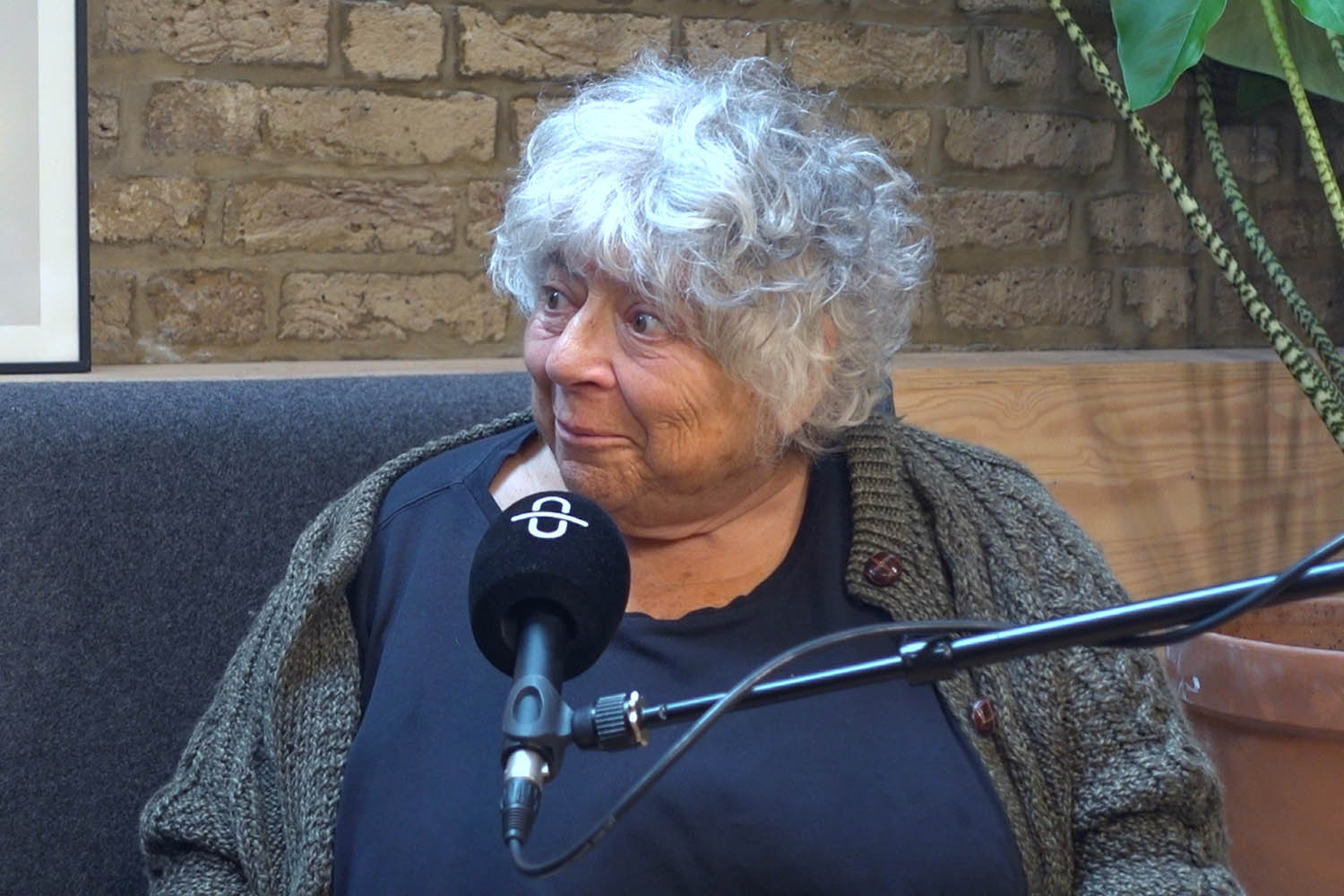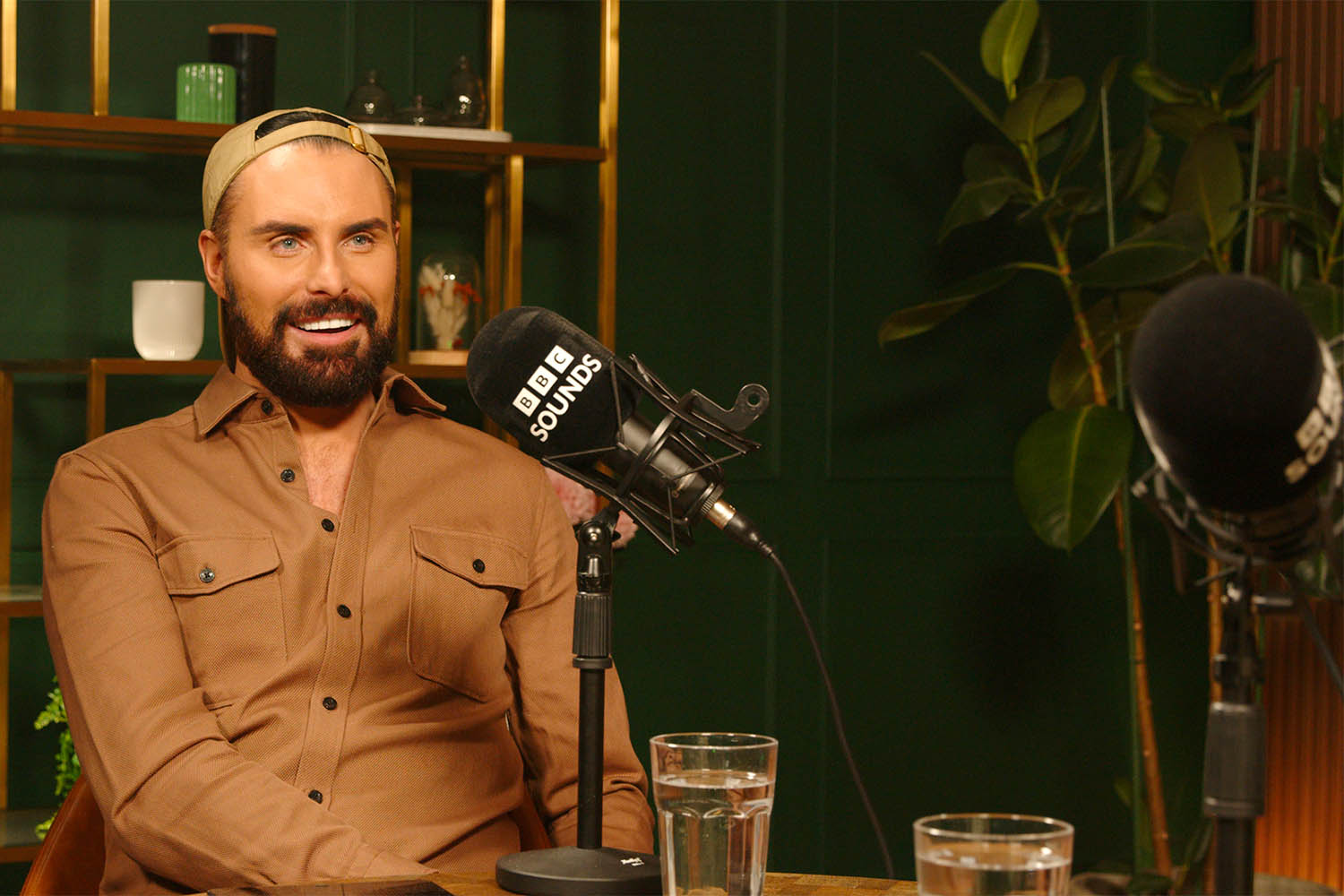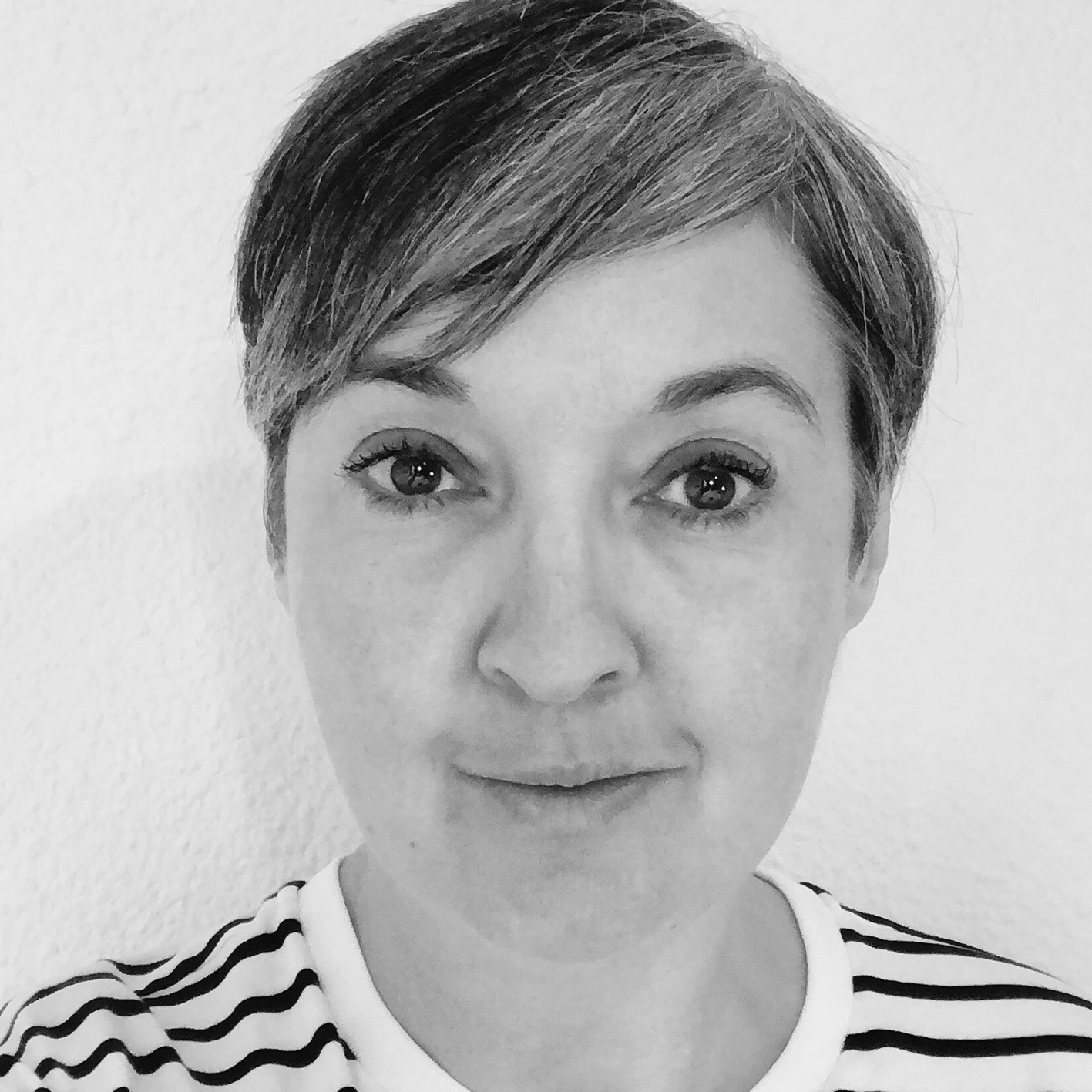There are many theories about how romance blooms, and then there’s Stephen Fry’s assessment, which, it turns out, is the pits. “At some point, love sprouts in your brain in the same way hair sprouts under your arms,” he tells Rylan Clark, remembering the arrival of the schmaltzy stuff in his adolescence.
Fry is the avuncular first guest on the new BBC Sounds podcast, Rylan: How to Be in Love, from everyone’s favourite permatanned, pearly-toothed presenter. My first thought: surely Rylan doesn’t have to make a series about his rubbish love life. Last year, his thoughtful curiosity offered new ways into Italian arts and culture on the Bafta-winning BBC Two series Rob and Rylan’s Grand Tour. His previous series under the How to Be... banner covered masculinity and fame. Love, as a subject, risks being rather wet – and I’m not talking in Rylan’s preferred mode of filthy double entendres.
We find out that Self Esteem lost her virginity to Kate Bush’s Hounds of Love
We find out that Self Esteem lost her virginity to Kate Bush’s Hounds of Love
Then again, love might prompt celebrities to dish out gossipy, messy details about their real lives, not that we get enough of this in episode one. I’d heard Fry’s brilliant put-down to homophobic teenage bullies before (“Don’t touch me, I’ll get an erection!”). Rylan’s mention of going out underage at night in Soho offered more to raise eyebrows, although this fascinating diversion ended too soon.
Pop star Rebecca Lucy Taylor, AKA Self Esteem, provides more fun in episode two. We find out how she lost her virginity to Kate Bush’s Hounds of Love, her take on sexual positions, and there’s a moving chat towards the end when Rylan worries about someone having to see him behind the makeup. In general, however, the show feels a little too polite, although I get why celebrities want to guard their privacy zealously. What this show requires, perhaps, are some more pressing questions for it to sound really turned on.
From the heart to some arteries, guts, and – brace yourselves – Miriam Margolyes’s vagina. Bedside Manners (Pixiu) is a new celebrity podcast about health presented by Dr Oscar Duke, a silky-voiced regular on BBC One’s daytime show Morning Live. This series has been out for a few weeks, and despite it being window dressing for private healthcare company HCA UK (I’m in the save the NHS camp, myself), it’s annoyingly good.
The guests help. Naturally, Margolyes farts in the opening seconds of episode one, but her ruminations on the ageing of her parents and herself (“I’m glad I only have to do it once”) are very moving. She discusses the long life of her beloved GP father, the impact of her coming out to her mother (“it ruined her life”) and the effects of her mother’s stroke in 1968 (“all our friends melted away”).

Miriam Margolyes on Bedside Manners
Episode two features Paul Whitehouse on his “dodgy heart”, a story well known to fans of his Gone Fishing TV series with Bob Mortimer, but we also get grislier details, which Whitehouse still manages to make funny. His stents were fitted through his femoral artery, he explains, which was an “unpleasant route to my heart”. He then decides this is a good name for a country song and starts singing on the spot.
There’s less humour, tragically, in The Crisis Room, the new podcast from the Global Media stable that promises “a front-row seat to the world’s power plays and covert crises”. Like its swaggering older sibling, The News Agents, it’s based around three presenters: former BBC journalist Mark Urban, one-time home secretary Amber Rudd and ex-CIA officer Marc Polymeropoulos. They’re dubbed “the journalist, the politician and the spy” on the podcast blurb, and the show’s silly theme music, like something from a bad 1980s cop show, drums out an imperious tone.
Given the presenters’ experience in warzones and security briefings, they certainly do have material. During a discussion about the Liverpool parade incident, Rudd recalls finding out about the London Bridge attack of 2017 not from her Spads, but while scrolling on Twitter. She also remembers an urgent call from White House chief of staff John Kelly around the time of Donald Trump’s “Muslim ban”, which she took on top of a filing cabinet in a primary school stationery cupboard in Hastings.
Urban’s brief rant about a Newsnight package editor was also intriguing (Polymeropoulos loved that he called it a “ding-dong” – more of these funny reactions, please), but it didn’t go far enough. Most of the time, episode one felt like a recording of three people in a room talking to one another, not realising there were people outside also listening to them.
Newsletters
Choose the newsletters you want to receive
View more
For information about how The Observer protects your data, read our Privacy Policy
Finally, to an old-school piece of radio making broadcast mid-afternoon on Radio 4 (find it under the new Artworks strand on BBC Sounds). The Monstrous Regiment tells the story of the pioneering feminist theatre company of the same name, formed 50 years ago in the tides of second-wave feminism. Its interviewees include playwright Bryony Lavery and actor Roger Allam, who both began their careers here (Allam as one of the company’s two men).
The company emerged when roles for women in leftwing fringe productions were slim pickings, Scottish actor Mary McCusker tells us, adding her tactic for warding off the unwanted sexual attentions of men, which remains one for the ages. “I would put the head in. It’s what’s called the Glasgow kiss. I wouldn’t do it now because my retina might detach.”
Photographs courtesy of BBC, Pixiu

